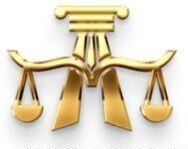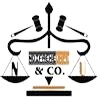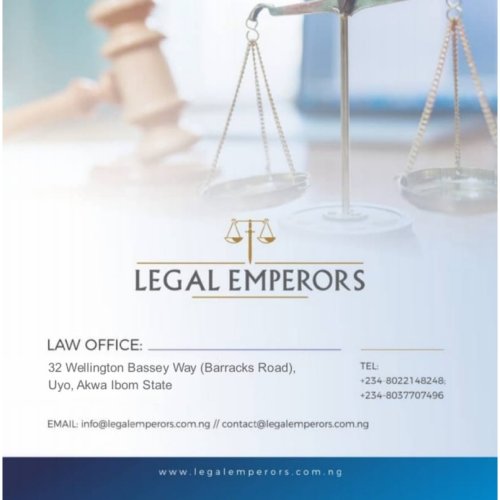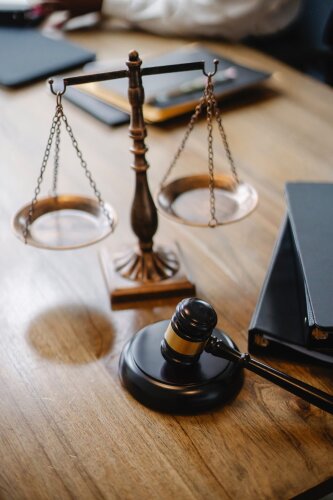Best Due Diligence Lawyers in Uyo
Share your needs with us, get contacted by law firms.
Free. Takes 2 min.
List of the best lawyers in Uyo, Nigeria
About Due Diligence Law in Uyo, Nigeria
Due diligence in Uyo, Nigeria, refers to the investigation or care that a reasonable business or person is expected to take before entering into an agreement or transaction with another party. It involves steps taken to ensure compliance with legal requirements, assess financial performance, verify the material facts of a deal, and thoroughly check the credentials of a business or individual prior to a business transaction such as an acquisition, investment, or partnership. The extent and nature of due diligence can vary significantly depending on the complexity of the transaction and the industry in question.
Why You May Need a Lawyer
Business entities and individuals may need legal help in due diligence for various reasons, including:
- Accurate interpretation of the legal implications of documents and transactions.
- Assistance in conducting comprehensive compliance checks with Nigerian laws and regulations.
- Guidance in the preparation of due diligence reports.
- Advisory services during the negotiation of contracts to ensure full disclosure and fair dealing.
- Expertise in specialized areas like real estate, intellectual property, employment, and corporate law which may influence the scope and outcome of due diligence.
- Help in mitigating potential legal risks identified during the investigation.
Local Laws Overview
Local laws pertinent to due diligence in Uyo, Nigeria could encompass a wide range of legislation, including:
- The Companies and Allied Matters Act (CAMA), which provides the legal framework for the incorporation and operation of companies.
- The Investment and Securities Act, directing the conduct of securities and investment business.
- Various laws regulating property transactions, for proper due diligence in real estate matters.
- Employment and labor laws, to be considered during the due diligence of a company's workforce and labor practices.
- Intellectual Property laws, which protect trademarks, patents, and copyrights that can be crucial assets of a company.
- Environmental laws, ensuring compliance with environmental standards and regulations.
Frequently Asked Questions
What exactly is due diligence?
Due diligence is an investigation, audit, or review performed to confirm the facts of a matter under consideration. It is the careful examination typically undertaken by one party to a transaction to validate the material facts regarding the other party or the transaction itself.
How long does the due diligence process take?
The due diligence process can vary in length, often taking anywhere from a few weeks to several months, depending on the size and complexity of the transaction, and the efficiency of the parties involved.
Is due diligence legally required?
While due diligence itself is not a legal requirement, it is a standard business practice enforced through various laws that necessitate certain checks and investigations be performed.
What areas does due diligence cover?
It can cover a host of areas like financial, legal, labor, tax, IT, environmental and market due diligence.
Can due diligence help avoid future legal problems?
Yes, due diligence can identify potential legal issues early on, allowing parties to address them proactively to avoid future disputes or liabilities.
Who performs due diligence?
Due diligence is most often carried out by the buyer within a transaction, although sellers can also perform due diligence on the buyer. Lawyers, accountants, and other professionals often support this process.
What happens if due diligence reveals problems?
If issues are discovered, parties may renegotiate terms, request repairs, seek price adjustments or, in severe cases, walk away from the deal.
What are representations and warranties?
These are statements of fact that a buyer or seller declares to be true at the point of sale and are used to allocate risk between the two parties should the statements be false.
What is the difference between due diligence and an audit?
An audit is typically a systematic review of financial statements or performance, often for compliance or regulatory purposes, whereas due diligence has a broader scope, examining legal, financial, and operational aspects of a business or transaction.
Should due diligence be kept confidential?
Yes, information shared during due diligence should be kept confidential, often protected by nondisclosure agreements (NDAs).
Additional Resources
For those seeking further information on due diligence in Uyo, Nigeria, the following resources can be helpful:
- The Corporate Affairs Commission (CAC) for company searches and corporate compliance.
- The Nigerian Investment Promotion Council for investment-related regulations.
- The Federal Inland Revenue Service for tax due diligence.
- The National Office for Technology Acquisition and Promotion for intellectual property due diligence.
Next Steps
If you require legal assistance in due diligence in Uyo, Nigeria, consider the following steps:
- Identify lawyers or law firms in Uyo that specialize in due diligence and have a track record in the specific industry of interest.
- Set up an initial consultation to discuss your needs and assess their suitability.
- Be prepared with relevant documents and a clear explanation of your transaction or concern.
- Discuss your goals for due diligence and listen to the advice of legal experts regarding strategy and process.
- Engage a lawyer or legal team to aid in conducting thorough due diligence, ensuring that all legal aspects are covered to your satisfaction.
Lawzana helps you find the best lawyers and law firms in Uyo through a curated and pre-screened list of qualified legal professionals. Our platform offers rankings and detailed profiles of attorneys and law firms, allowing you to compare based on practice areas, including Due Diligence, experience, and client feedback.
Each profile includes a description of the firm's areas of practice, client reviews, team members and partners, year of establishment, spoken languages, office locations, contact information, social media presence, and any published articles or resources. Most firms on our platform speak English and are experienced in both local and international legal matters.
Get a quote from top-rated law firms in Uyo, Nigeria — quickly, securely, and without unnecessary hassle.
Disclaimer:
The information provided on this page is for general informational purposes only and does not constitute legal advice. While we strive to ensure the accuracy and relevance of the content, legal information may change over time, and interpretations of the law can vary. You should always consult with a qualified legal professional for advice specific to your situation.
We disclaim all liability for actions taken or not taken based on the content of this page. If you believe any information is incorrect or outdated, please contact us, and we will review and update it where appropriate.











